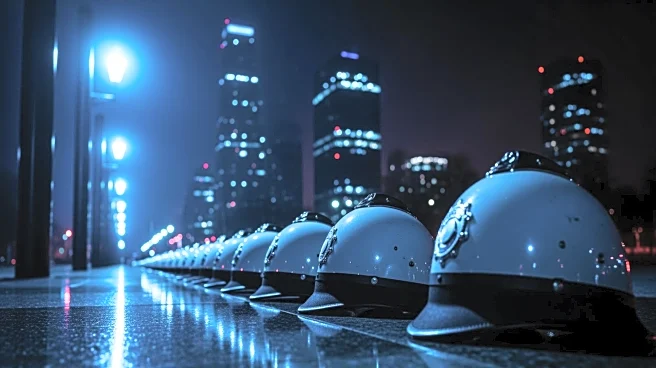What's Happening?
South Africa has deployed 3,500 additional police officers and placed the army on standby in preparation for anticipated protests during the upcoming G20 summit in Johannesburg. The National Joint Operational
and Intelligence Structure, which coordinates police, army, and intelligence services, is overseeing security measures for the event. Authorities have designated specific areas for protesters to gather near the summit venue, an exhibition center adjacent to the country's largest soccer stadium. Various groups, including anti-capitalists, climate activists, women's rights campaigners, and anti-migrant organizations, are expected to demonstrate, highlighting issues such as poverty and inequality in South Africa. The summit, set to begin on Saturday, will host leaders and diplomats from over 40 countries, along with representatives from global institutions like the United Nations and the World Bank.
Why It's Important?
The deployment of additional security forces underscores the South African government's concern over potential disruptions during the G20 summit, a significant international event. The protests reflect broader societal issues within South Africa, such as economic inequality and high unemployment rates, which are among the highest globally. The summit provides a platform for various advocacy groups to voice their concerns on a global stage, potentially influencing international perceptions and policies. The absence of President Trump, who is boycotting the summit over claims of anti-white policies by South Africa's government, adds a layer of diplomatic tension, potentially affecting the summit's outcomes and South Africa's international relations.
What's Next?
As the summit approaches, authorities will continue to monitor and manage protest activities to ensure security and order. The protests may lead to increased scrutiny of South Africa's domestic policies and international relations, particularly concerning racial and economic issues. The government's handling of the protests and the summit's proceedings could impact its reputation and diplomatic standing. Additionally, the outcomes of the summit may influence future international collaborations and policy decisions, particularly in areas related to economic development and social justice.










